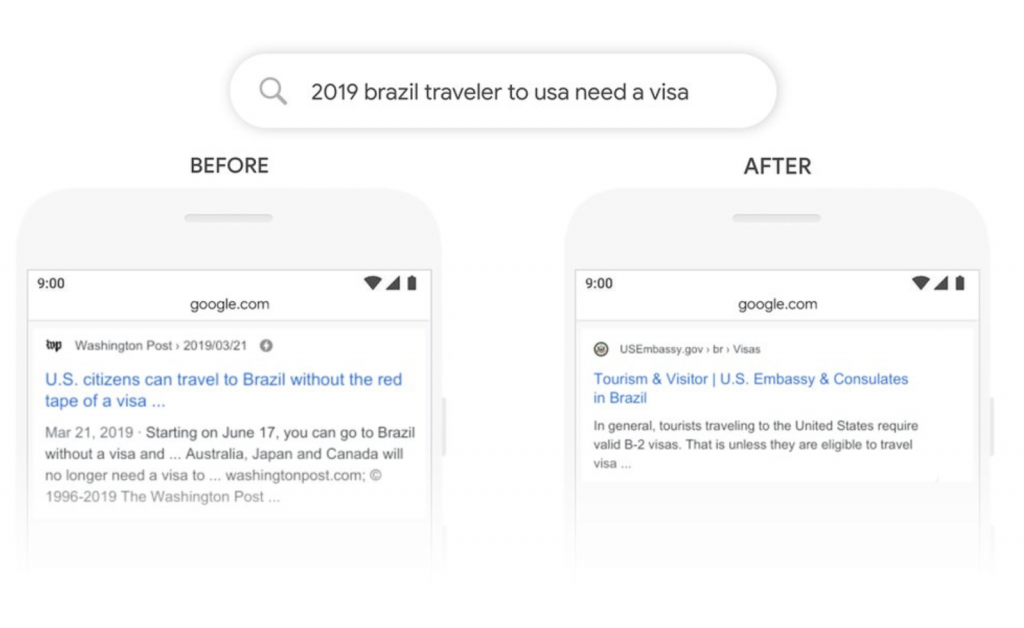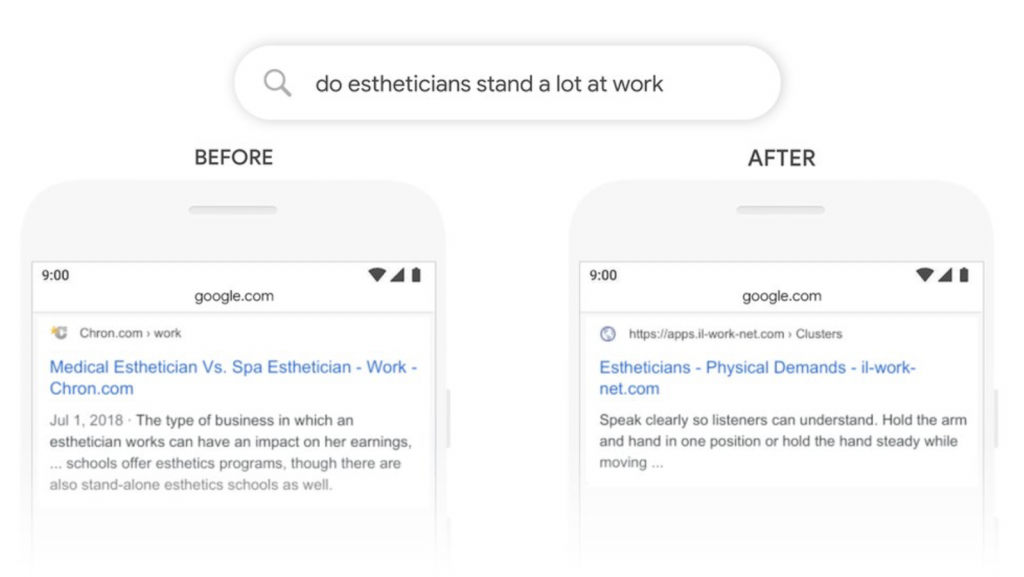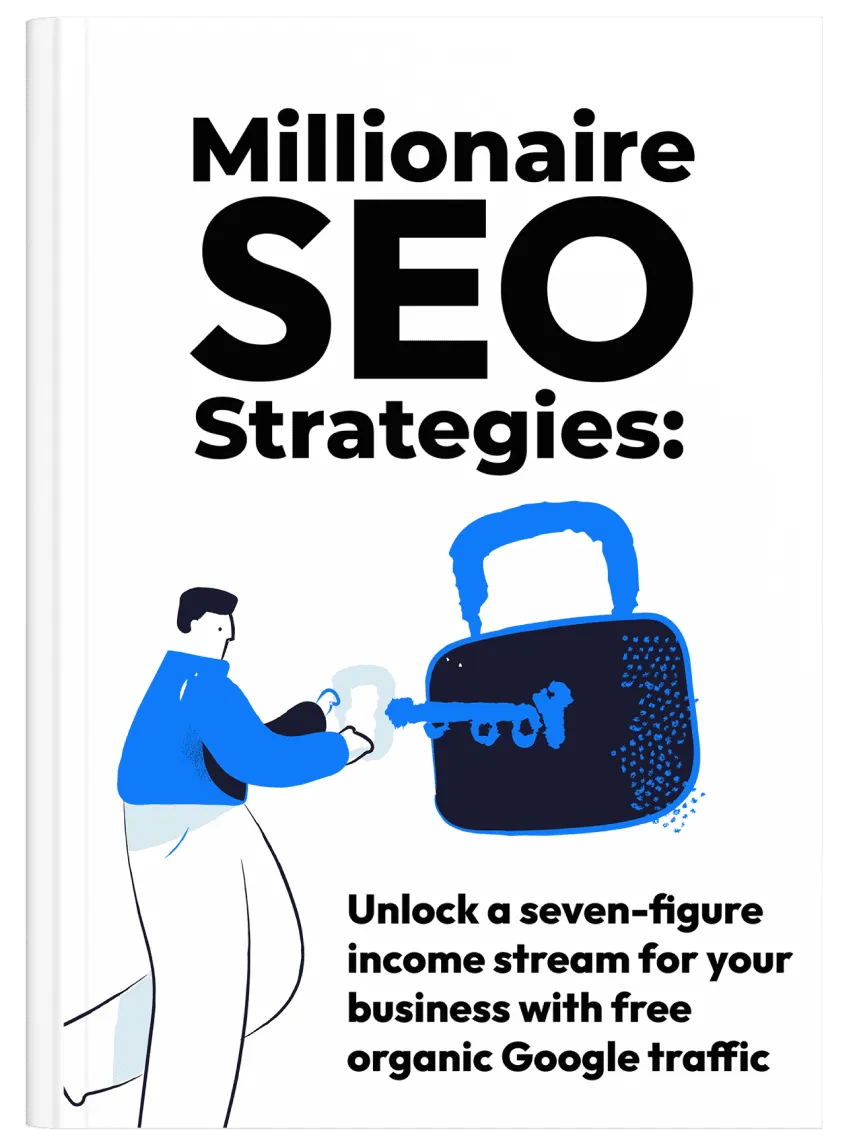
A beginner’s guide to understanding Google BERT
Algorithm changes are an integral part of Google and how it understands web pages and ranks them on the search engine results pages. Many algorithm updates come and go without much fuss, but every now and then, an algorithm change pops up that gets almost everyone in the SEO industry talking about it.
Examples of such massive Google algorithm updates include Google Panda, Google Penguin, and the Google Hummingbird update.
On October 21, 2019, Google announced another such high-profile algorithm change for English-language queries — BERT.
What is Google BERT?
BERT stands for Bidirectional Encoder Representations from Transformers, and that does not really clarify what it means for online content and SEO professionals.
In simpler words, Google BERT is supposed to help Google better understand what the words in a written sentence mean, including the nuances of context which was previously missing.
This is how Google researchers explained the concept of BERT in a 2018 published paper:
“Unlike recent language representation models, BERT is designed to pre-train deep bidirectional representations from unlabeled text by jointly conditioning on both left and right context in all layers. As a result, the pre-trained BERT model can be fine-tuned with just one additional output layer to create state-of-the-art models for a wide range of tasks, such as question answering and language inference, without substantial task-specific architecture modifications.”
How will Google BERT work?
Google estimates that BERT will affect approximately 10 percent of all search queries. That is a big deal, which will have a significant impact on the search engine results pages and how content creators operate.
Another important thing to note here is that BERT will target more “longer, more conversational queries”. This indicates that long-tail keywords and voice searches can be eventually affected by this algorithm change.
In short, you can understand BERT as a way to understand a user’s search intent in a much better way and present the right results accordingly.
Here is an excellent example of how BERT comes in to play and deliver more accurate results as per the user’s search intent.
As you can see in the above example, after BERT, Google was able to understand the context of the search query in a better way and presented a result that would be much more helpful to the online searcher.
Here is another example of the contextual understanding that Google BERT brings in the search engine world.
How will Google BERT affect SEO?
There is no doubt that Google BERT will improve search engine results for the users. But how will it affect search engine optimisation and SEO professionals?
Danny Sullivan from Google mentioned that content marketers and SEO professionals wouldn’t have to do anything — except creating great content — to optimise their web pages for Google BERT.
For as long as you create content “for the users”, you should be fine.
As Danny told, “BERT does not change the fundamentals”. It only improves the understanding of how Google’s machine learning and AI work and present the most accurate and relevant results to users after understanding their search intent.
So what are some of the things that content marketers and SEO professionals can do to make sure they get the best results going forward?
Here are a few best practices that you should follow:
- Create comprehensive, detailed, and useful content for your readers.
- Make sure you fully understand who your readers are and what they want.
- Google BERT update aims to understand the user’s search intent more comprehensively and contextually. So make sure you understand that intent as well and create content accordingly.
- Utilise long-tail keywords and longer, conversational queries that will help flesh out your content.
- Invest your time and resources in creating more relevant content.
Conclusion
There is no doubt that Google BERT is a breakthrough in the use of machine learning, AI, and natural language processing (NLP). It will help Google understand the nuanced contexts of written words, which, in turn, will help users get more relevant results in the SERPs.
For content marketers and SEO professionals, it reemphasizes the importance of relevant, fluff-free, and useful content.
At the moment, Google BERT is expected to affect 10 percent of all search queries in the English language. Google plans to expand this to more languages and regions over time.
Google BERT is a reality now, and it will continue to play a bigger role in how online searchers get search engine results. At the same time, it presents a great opportunity for content creators to create more relevant content for their readers and help them.











